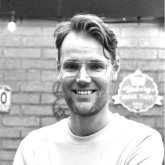PhD Candidate Upscaling drought resilience from species to landscape level
The University of Twente wants to be an organisation that effectively deploys diversity, talents, and capabilities in the labour market for now and in the future. In the framework of our diversity and inclusiveness policy, we strongly stimulate people with a (work) disability to apply.
The University of Twente is committed to providing a working environment where everyone is valued, respected, and supported to progress. Our priority is to ensure that no one is disadvantaged based on their ethnicity, gender, culture, disability, LGBTQ+ identities, family and caring responsibilities, age, or religion. We encourage everyone who shares these values to apply.
Do you wonder how we can make Dutch landscapes more resilient to drought? Are you fascinated by the spatial and temporal patterns you see on satellite images? If you want to engage in research combining these two to study drought and recovery patterns in Dutch landscapes with forest patches and to be part of a team of researchers, practitioners and societal organisations, then this could be your call.
This research is part of the project COMBINED (Combatting biodiversity loss and improving climate change resilience through evidence-based, integrated, and adaptive landscape governance in the Netherlands). In COMBINED, 24 societal organisations and knowledge institutes, including municipalities, NGOs, businesses, and (applied) universities, team up to simultaneously improve climate change resilience and biodiversity in grassland, forest, and urban landscapes in the Netherlands.
You will combine and upscale knowledge on drought resilience of individual species and communities to the landscape level and monitor the spatio-temporal patterns of drought and recovery in forests and grasslands in peri-urban landscapes based on remote sensing. You will also combine (existing) biodiversity information on the forest and grasslands with remote sensing-based proxies of biodiversity to assess dependency on landscape settings. You will review the ability of existing monitoring strategies based on remote sensing and spatial statistics to evaluate and communicate the effectiveness of measures on biodiversity, climate and related ecosystem services to area managers. You will explore the impact of management practices and the robustness of landscape settings against climate scenarios, i.e. the ability to recover after a drought event.
Information and application
For more information, you may contact Dr Wietske Bijker (email: w.bijker@utwente.nl) or Prof Wieteke Willemen (email: l.l.willemen@utwente.nl). You are also invited to visit our homepage.
For questions about working and living in the Netherlands, please consult the official website of the Netherlands Government or the website of the Expat Center East Netherlands.
Please submit your application before May 31, 2025, including:
- A motivation letter (one-page maximum) emphasising your specific interests, qualifications and motivation for this position
- Curriculum Vitae (including a list of all courses attended, grades obtained, the names and contact information of two references and – if applicable – a publication list)
- A written example of your scientific work, such as an MSc thesis, recent individual report or article
First-round (online) interviews are scheduled in the second half of June. A (possible) second round interview might take place in early July.
About the department
This research is conducted in collaboration between the Department of Natural Resources and the Department of Earth Observation Science.
Natural resources are crucial to maintaining the well-being of societies. Sustainable management of these natural resources balances the needs of people and the environment. It avoids the depletion, degradation, and destruction of ecosystems, prevents biodiversity loss and soil erosion, and mitigates the impacts of climate change. Our research, education, and partnerships empower society to effectively use insights from geo-information and Earth observation technologies for sustainable management of the environment. The outcome is an increased understanding of the processes that affect the availability, stability, quality, and sustainability of natural resources, enabling their preservation, sustainable use, development, or restoration. Our academic staff, PhD candidates, and MSc students focus on developing both the means and the measurements that are essential to monitoring trends, tracking changes, and enabling action to sustain biologically diverse environments and productive agricultural systems.
The department of Earth Observation Science deals with earth observation technology for problem-solving. Problem-solving means primarily the identification of solutions for large-volume producers of geo-information and the identification of solutions for application domains. The department is involved in teaching Masters of Geo-Information and Masters of Robotics. The department is also part of the Robotics Centre of the University of Twente.
About the organisation
The Faculty of Geo-Information Science and Earth Observation (ITC) provides international postgraduate education, research and project services in the field of geo-information science and earth observation. Our mission is capacity development, where we apply, share and facilitate the effective use of geo-information and earth observation knowledge and tools for tackling global wicked problems. Our purpose is to enable our many partners around the world to track and trace the impact – and the shifting causes and frontiers – of today’s global challenges. Our vision is of a world in which researchers, educators, and students collaborate across disciplinary and geographic divides with governmental and non-governmental organisations, institutes, businesses, and local populations to surmount today’s complex global challenges and to contribute to sustainable, fair, and digital societies.




